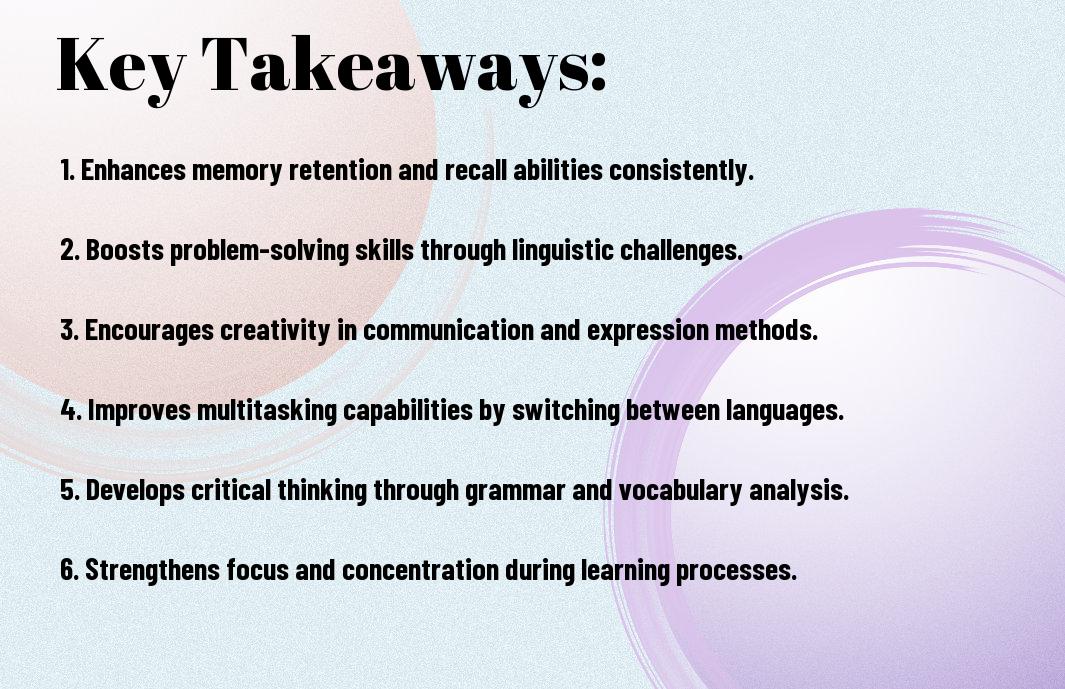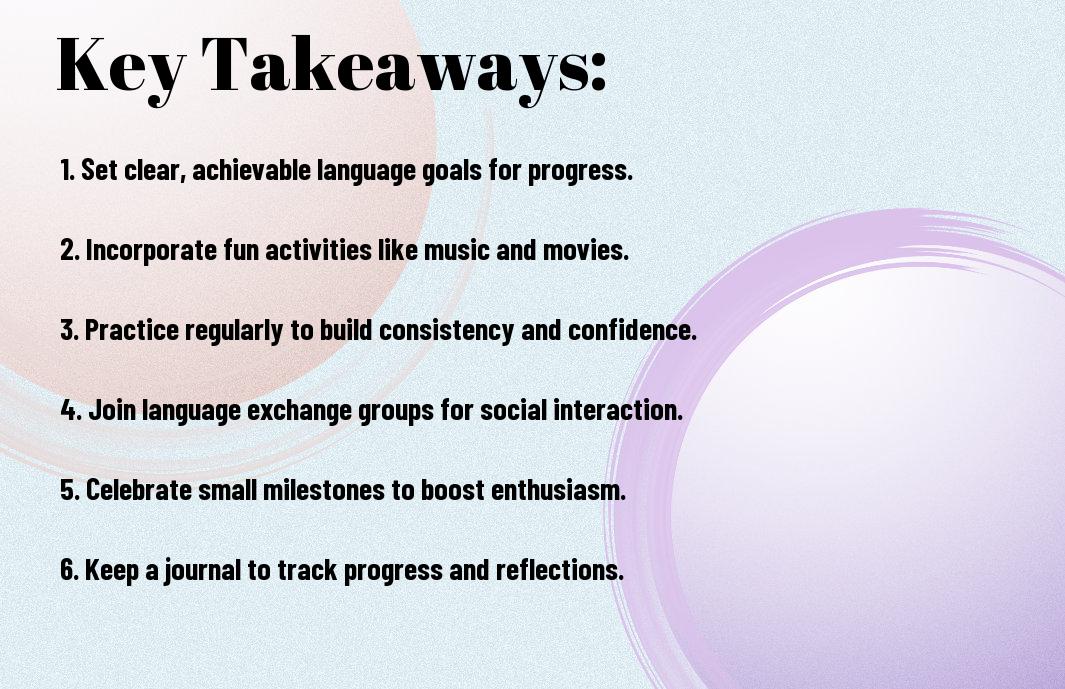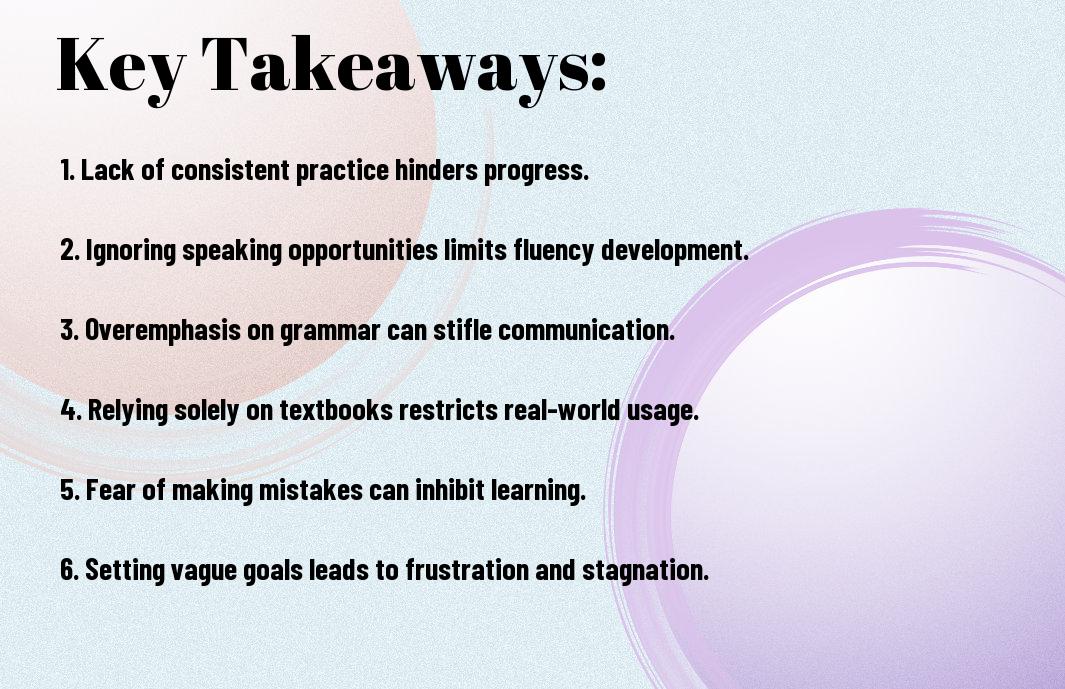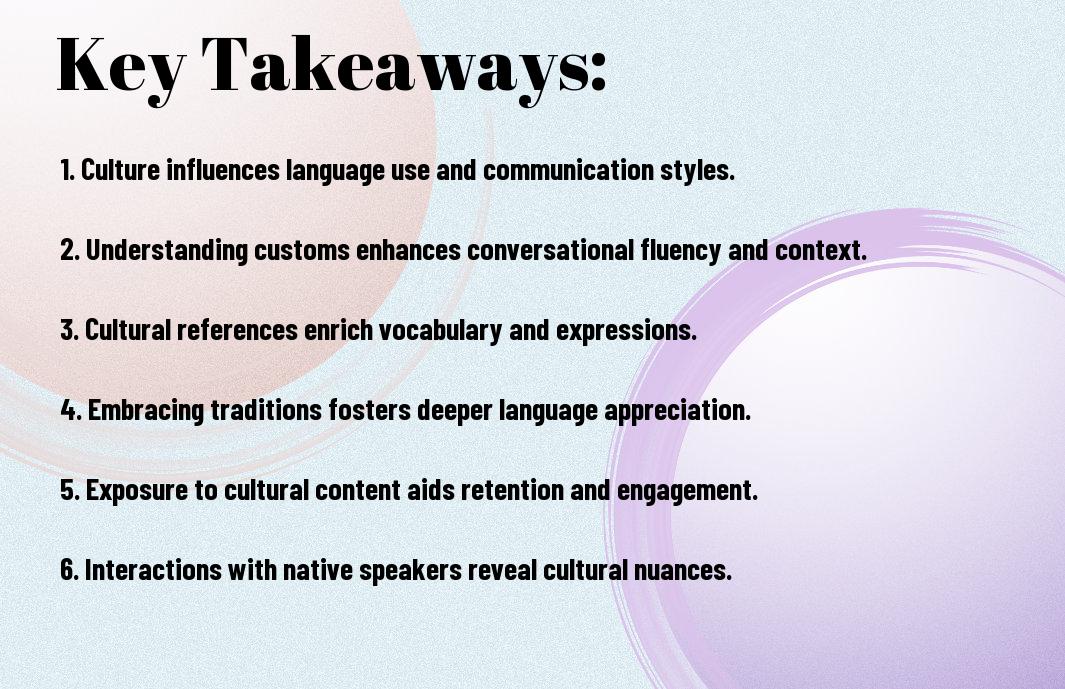As you launch on learning a new language, you’ll notice improvements in your cognitive skills. Your brain will become more adept at processing information, enhancing your problem-solving abilities and memory. You’ll develop a stronger ability to focus and concentrate, allowing you to tackle complex tasks with ease. By challenging your brain with a new language, you’ll experience significant cognitive benefits that extend beyond language proficiency, influencing your overall mental agility and sharpness.
Key Takeaways:
- Learning a new language can significantly enhance cognitive flexibility, allowing individuals to switch between different mental tasks more efficiently and adapt to new situations.
- Memory improvement is another significant benefit of language learning, as it requires the ability to absorb and retain new vocabulary, grammar rules, and sentence structures.
- Language learning can also boost problem-solving skills by promoting analytical thinking and the ability to approach problems from different angles.
- The process of learning a new language can delay the onset of cognitive decline and even prevent age-related memory loss by building cognitive reserve.
- Additionally, language learning can improve multitasking abilities by enabling individuals to process and integrate multiple sources of information simultaneously, leading to better overall cognitive performance.
Enhancing Memory
The process of learning a new language has a significant impact on your cognitive skills, particularly when it comes to memory. As you learn new vocabulary, grammar rules, and sentence structures, your brain creates new connections and strengthens existing ones, leading to improved memory retention.
Improving Vocabulary Retention
Along with the benefits of enhanced memory, you will also experience improved vocabulary retention. As you learn and practice new words, you will find that you are better able to recall and use them in context, helping to expand your language skills.
Developing Better Learning Strategies
Adeptly, you will develop better learning strategies as you navigate the challenges of language learning. You will learn to approach problems from different angles, analyze complex information, and adapt to new situations, all of which will serve you well in your language learning journey.
At this point, you will start to notice that your ability to learn and absorb new information is improving, and you will be able to apply these skills to other areas of your life. As you continue to develop better learning strategies, you will become a more effective and efficient learner, able to tackle complex tasks with confidence and accuracy.

Boosting Problem-Solving Skills
If you learn a new language, you’ll improve your problem-solving abilities. As you navigate unfamiliar grammar and vocabulary, you’ll develop your analytical mind. For more information on how language learning affects brain development, visit How learning a new language helps brain development to discover the benefits for yourself.
Analyzing Language Patterns
Similar skill sets are required to analyze language patterns, as you identify and apply grammatical rules to communicate effectively. Your brain becomes adept at recognizing patterns, making connections between words and ideas, and applying this knowledge to solve problems.
Enhancing Critical Thinking
Skillful thinkers are developed through language learning, as you evaluate information, consider different perspectives, and make informed decisions. You become a more discerning and nuanced thinker, able to approach problems from multiple angles.
Hence, as you develop your critical thinking skills through language learning, you’ll become more adept at tackling complex problems and finding innovative solutions. You’ll be able to break down complex information, identify key issues, and develop well-reasoned arguments, making you a more effective problem-solver in all areas of your life.
Improving Concentration
Many language learners experience improved concentration as they progress in their studies. You will find that focusing on language learning requires attention to detail, which can enhance your overall ability to concentrate.
Focusing on Language Structure
Enhancing your understanding of language structure helps you develop your cognitive skills, including concentration. You will learn to identify patterns and relationships between words, which can improve your ability to focus.
Reducing Distractions
Around the time you start language learning, you may notice that you become more aware of your surroundings and better at filtering out distractions. You will be able to concentrate more effectively, even in noisy environments.
Also, as you continue to learn a new language, you will develop strategies to minimize distractions and stay focused on your goals. You will learn to prioritize tasks, manage your time, and create a conducive learning environment, all of which will help you improve your concentration and achieve your language learning objectives.
Developing Multitasking Abilities
Not only does language learning improve your focus, but it also enhances your ability to switch between tasks efficiently. As you become more proficient in a new language, you’ll find that your brain becomes better at handling multiple tasks simultaneously, making you a more effective multitasker.
Balancing Language and Non-Language Tasks
With newfound language skills, you’ll be able to balance language-related tasks, such as reading and writing, with non-language tasks, like problem-solving and decision-making, more effectively, allowing you to tackle complex projects with ease.
Enhancing Overall Productivity
Productively, you’ll find that language learning helps you prioritize tasks and manage your time more efficiently, leading to increased productivity in all areas of your life, including work, study, and personal projects.
Plus, as your multitasking abilities improve, you’ll be able to take on more responsibilities and achieve your goals faster, which will have a positive impact on your overall well-being and confidence, enabling you to tackle even more challenging tasks and continue growing as a person.
Enhancing Creativity
To improve your cognitive skills, learning a new language can have a significant impact on your creative abilities, allowing you to think outside the box and explore new ideas.
Exploring Linguistic Expression
Along with acquiring new vocabulary, you will discover various linguistic expressions that can broaden your perspective, enabling you to convey your thoughts and ideas more effectively.
Fostering Innovative Thinking
Enhancing your language skills can also stimulate your mind, encouraging you to approach problems from unique angles and develop innovative solutions, which can benefit your personal and professional life.
Due to the complex nature of language learning, you will develop your ability to think creatively, making connections between seemingly unrelated concepts and ideas, and applying this skill to various aspects of your life, leading to increased innovative thinking and problem-solving capabilities.

Supporting Academic Achievement
For students, learning a new language can have a significant impact on academic performance, as you can discover more about the Cognitive Benefits of Learning a Second Language. This skill can enhance your overall learning experience.
Improving Test Scores
Before you take any exam, your language skills can help you better understand the questions and answer them more accurately, leading to improved test scores and a stronger academic record.
Enhancing Research Skills
Below the surface of language learning lies a wealth of research opportunities, as you learn to analyze and evaluate information in multiple languages, expanding your knowledge and understanding of various subjects.
Achievement in language learning can also enhance your research skills by allowing you to access a broader range of academic resources, including books, articles, and primary sources in the target language, thereby deepening your understanding of the subject matter and enabling you to produce more informed and nuanced work.
Summing up
From above, you can see that learning a new language enhances your cognitive abilities, improving your memory, problem-solving skills, and concentration. As you acquire a new language, your brain develops neuroplasticity, allowing you to adapt to new situations and process information more efficiently. This, in turn, boosts your overall cognitive function, enabling you to tackle complex tasks with greater ease and precision, ultimately benefiting your personal and professional life. You will find that your mental agility and focus improve significantly.
FAQ
Q: How does language learning impact cognitive abilities in adults?
A: Language learning has been shown to have a profound impact on cognitive abilities in adults, improving memory, attention, and problem-solving skills. As adults learn a new language, they exercise their brain, building cognitive reserve and developing a stronger ability to focus and multitask. This, in turn, can lead to improved performance in various aspects of life, including work and personal relationships. Furthermore, language learning has been linked to a delayed onset of age-related cognitive decline, making it an excellent activity for adults looking to stay mentally agile.
Q: Can language learning improve cognitive skills in children, and if so, how?
A: Yes, language learning can significantly improve cognitive skills in children. When children learn a new language, they develop their brains’ ability to process and analyze complex information, leading to enhanced cognitive flexibility and adaptability. Language learning also fosters improved metalinguistic awareness, enabling children to better understand the structure and nuances of language, which can transfer to improved performance in other subjects, such as reading and writing. Additionally, bilingual or multilingual children often exhibit advanced social and emotional intelligence, as they learn to navigate different cultural contexts and communicate effectively with diverse groups of people.
Q: What specific cognitive skills are improved through language learning, and how can these skills be applied in everyday life?
A: Language learning improves a range of cognitive skills, including executive functions, such as planning, decision-making, and error correction. It also enhances linguistic skills, like phonological awareness, syntax, and semantics, which are important for effective communication. These skills can be applied in everyday life in various ways, such as improved public speaking, enhanced writing abilities, and more effective communication in personal and professional settings. Moreover, the cognitive skills developed through language learning can transfer to other areas, such as improved mathematical problem-solving, increased creativity, and better time management, making language learners more well-rounded and competent individuals.







